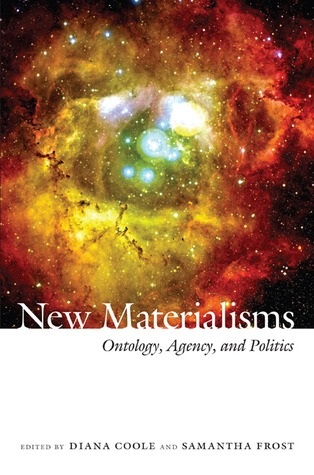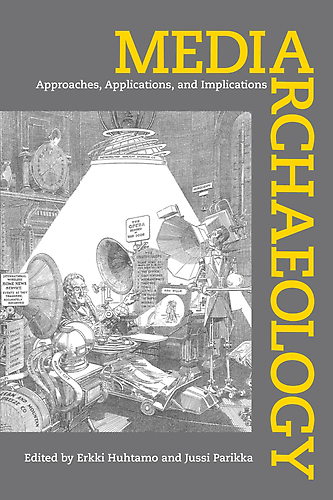|
I've written the sentence that I'm quite sure I'll spend the next two years revising:
"It is my hope that downloading feminist critical materialism as a utility to re-toggle media archaeology could produce relational methods better able to adjust for all the ways that media means and does—a deep material dynamism that has the capacity to fixate or “hold still” an object under analysis so to better disclose how it functions through practical, observable enactment, but that also has the charity to let an object go, to let it recede into the complex imbrication of material life so that one may observe—and be touched by—the agency of things." There's all sorts of words in this I feel ill at ease about--"functions" being a huge one (since it seems to imply that things can "function on their own"), enactment another (perhaps a misuse of this terms as I employ it from Annmarie Mol's The Body Multiple--it's too soon to tell), and of course all the sensory terms, "observe", "touched", etc. There's a struggle in language to articulate something which I haven't even fully mentally conceptualized yet. But I'm somehow closer--there's something in this notion of "holding still" and "letting recede" that feels powerfully apt for my project (I especially like the implication that "holding still" nonetheless permits us the think of the object as still in movement, with borders undefined). I'm excited to wonder at how working through this project will shift my lived relations to the world (to things and to people, to use a convenient, strategic shorthand). Whenever I struggle to write about critical materialism, I've discovered I hold out my hand over my keyboard (horizontal, flat, palm down) and bend and flex my fingers outward, and sort of wobble my hand--as if I'm thinking with my hand about how something might both "hold still" and "recede" through these micro-movements. It's a world of wonder... I'm currently cross reading Jussi Parikka and Erkki Huhtamo's Media Archaeology reader with Diane Coole and Samantha Frost's New Materialisms reader. This is necessary action.
With the rising prominence of Ernstian "cold gazes", claims about "getting away from our subjectivity" hinged on early-mid writing by Foucault (I'm wondering how the "ethical Foucault" would respond to such provocations), and an insistent depth-probe of the media archaeological object that isolates it from content and meaning--well, I'm concerned about where this takes media archaeology, the troubling terms on which media archaeology engages concepts of "emotion" and "affect" as distractions from the primacy of the technological substrate (and how regularly, suspiciously, they are figured as "feminine"). There's something concerning that I just don't like happening here, but I can't quite put my finger on it. I'm hoping that reading Grosz, Ahmed, Bennet and others against the grain of media archaeology will help me jack open the black box media archaeologists seem so keen on putting around us. |
Archives
March 2020
Categories
All
|


 RSS Feed
RSS Feed